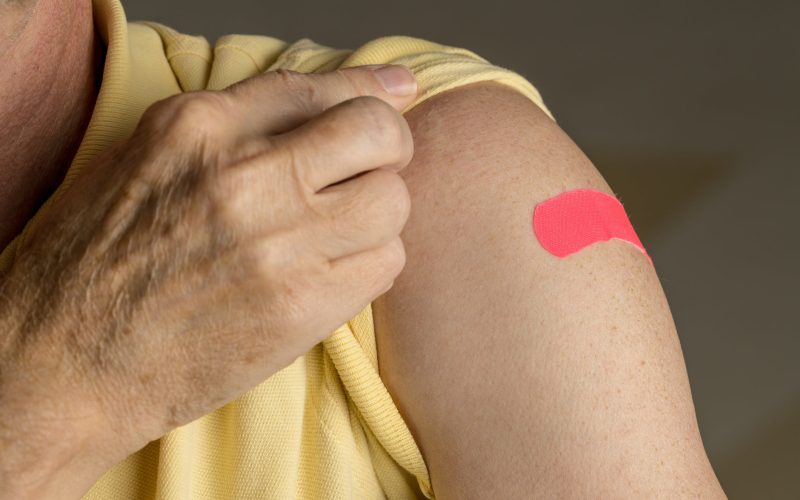The BCG vaccine does not offer vulnerable elderly people protection against the symptoms of COVID-19. These are the initial results of the BCG-PRIME study among 6,132 vulnerable patients aged 60 and over. Research into the existing tuberculosis vaccine started in September 2020 and was carried out in 20 Dutch hospitals, including all UMCs and the Santeon top clinical hospitals. The study was headed by Prof. Dr Marc Bonten (UMC Utrecht), Prof. Dr Mihai Netea (Radboudumc), Prof. Dr Frits Rosendaal (LUMC) and Prof. Dr Maurice van den Bosch (OLVG). The Ministry of Health, Welfare and Sport and the Netherlands Organisation of Health Research and Development (ZonMw) funded the study.
The researchers are already releasing the main findings now because of the clinical implications for patients. They are working hard to analyze and publish the results as quickly as possible, to allow colleagues to assess the findings.
Study lead Marc Bonten of UMC Utrecht: “The conclusion is clear: the BCG vaccine does not offer vulnerable elderly people protection against COVID-19. While disappointing, it is important to share the preliminary data immediately, especially during the ongoing pandemic. The BCG-PRIME study will be continued to investigate whether BCG vaccination protects against serious respiratory infections and/or severe forms of COVID-19.”
Mihai Netea, Radboudumc: “The results of the BCG-PRIME study are important because they provide a long-awaited answer to the question of whether BCG has an effect against COVID-19. Although BCG does not have a significant effect in this group of elderly people, we are looking forward to the results of other clinical trials. These study BCG in other groups, including healthcare workers.”
Frits Rosendaal, LUMC: “The large number of participants, and the fact that the study was randomized and double-blind, makes the results very reliable.”
Maurice van den Bosch, OLVG: “The BCG-Prime study is a textbook example of a special collaboration between the UMCs and Santeon top clinical hospitals. Innovation in the UMCs could be scaled up quickly for conducting the study in a large number of hospitals and patients. This new infrastructure is of value for the future of clinical research in our country.”
In the BCG-PRIME study, demonstrated COVID-19 infection in combination with disease symptoms occurred just as often in vulnerable elderly people who received a placebo as in those who received BCG vaccination. The study will be continued to determine whether BCG vaccination affects the severity of COVID-19 infection, or reduces susceptibility to other respiratory infections.
The BCG vaccine is the most widely administered vaccine in the world and is used in many countries to prevent tuberculosis. This means that the possible side effects are known. The BCG vaccine used in this study among the elderly was ordered by hospitals directly through RIVM. The study has no consequences for the availability of the vaccine for regular use in the Netherlands or abroad.
The placebo-controlled BCG-PRIME study includes 6,132 vulnerable patients aged 60 and over. They are monitored for six months after vaccination by the hospital where they are being treated. The study had two primary end points: (a) the number of corona infections that occurs, or (b) the occurrence of respiratory tract infections (including COVID-19) requiring medical treatment. Because the required number of corona infections had been reached, these data were analyzed and discussed in the safety committee last week. The results of the number of respiratory infections that occur will be presented later.
The BCG-PRIME study was set up by UMC Utrecht and Radboudumc, in collaboration with the LUMC and Santeon, with support from the Ministry of Health, Welfare and Sport and a ZonMw grant of up to €8.5 million. The BCG-PRIME study is the fourth study that has been conducted in the Netherlands with the BCG vaccine against COVID-19. Earlier, three other studies were started under the leadership of Marc Bonten (UMC Utrecht) and Mihai Netea (Radboudumc) into the possible protective effect of the BCG vaccine against COVID-19. The results of these studies are expected in the coming months.
